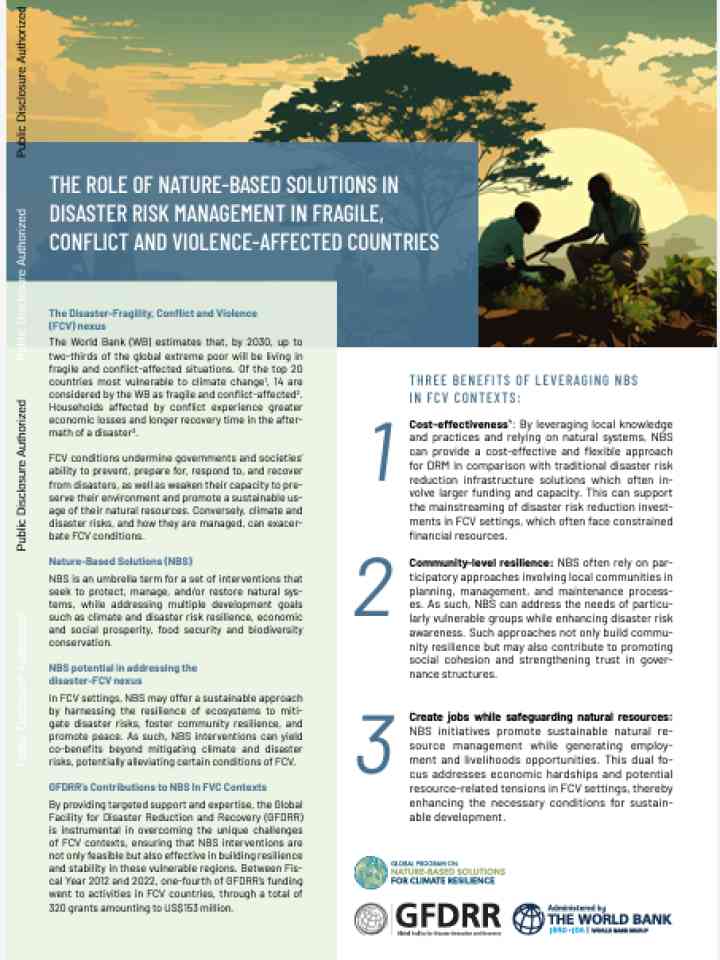The role of nature-based solutions in disaster risk management in fragile, conflict and violence-affected countries
The paper highlights the interconnection between disaster risks and fragile, conflict-affected, and violent (FCV) situations, emphasizing that by 2030, up to two-thirds of the global extreme poor may reside in FCV environments. These regions, particularly vulnerable to climate change, face greater economic losses and prolonged recovery periods post-disaster. FCV conditions weaken governments' and societies' ability to effectively manage disaster preparedness and environmental sustainability. Additionally, poor disaster and climate risk management can further exacerbate fragility, conflict, and violence, creating a negative feedback loop between these challenges.
Three benefits of leveraging NBS in FCV contexts:
- By leveraging local knowledge and practices and relying on natural systems, NBS can provide a cost-effective and flexible approach for DRM in comparison with traditional disaster risk reduction infrastructure solutions which often involve larger funding and capacity.
- NBS often rely on participatory approaches involving local communities in planning, management, and maintenance processes.
- NBS initiatives promote sustainable natural resource management while generating employment and livelihoods opportunities.
Explore further
